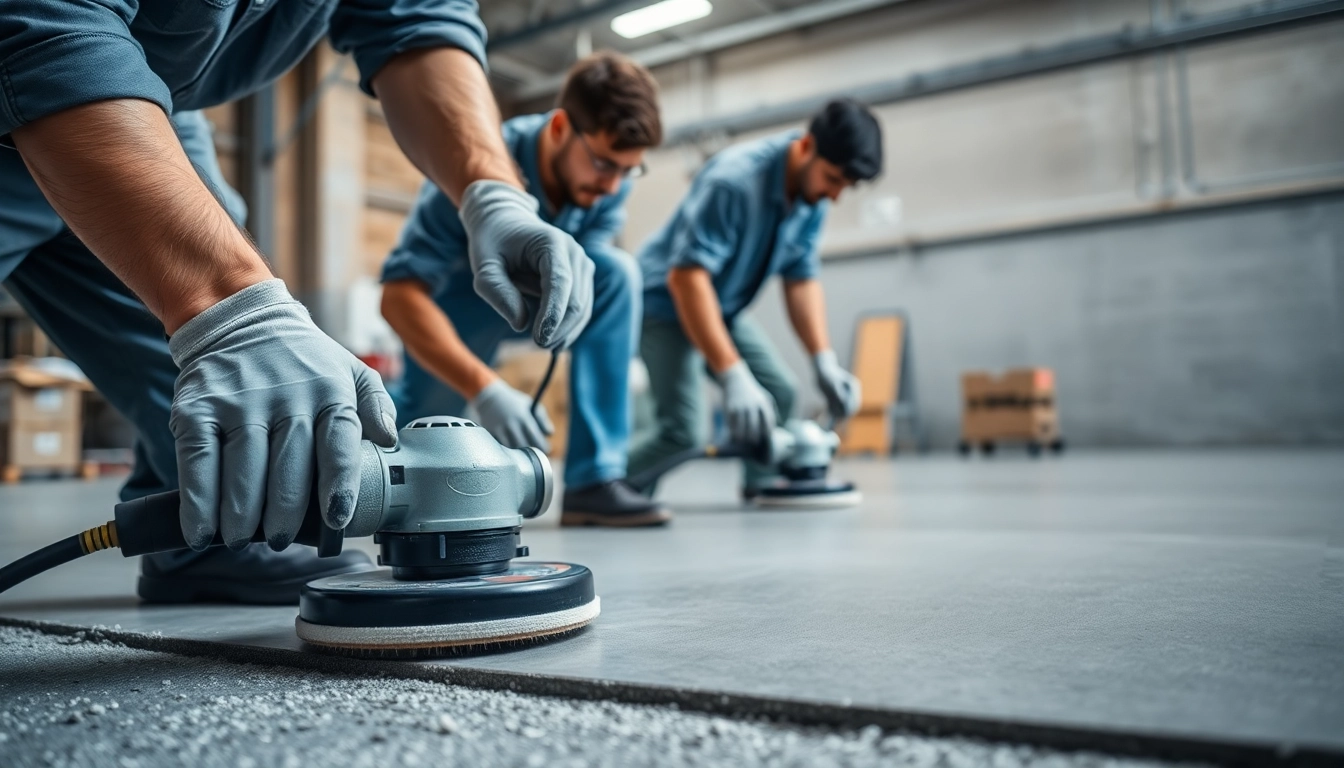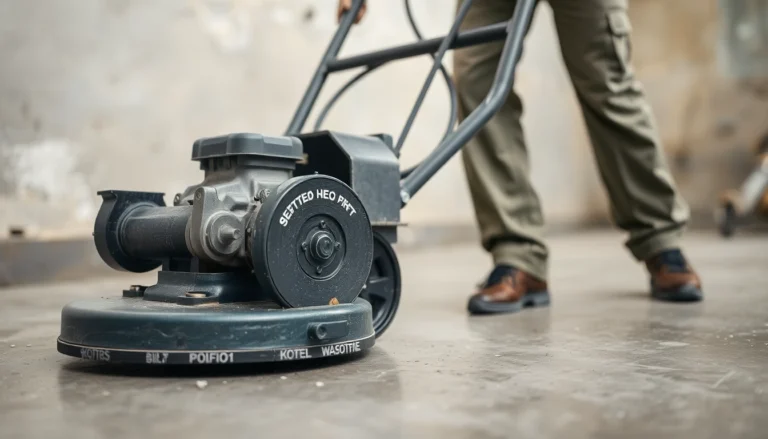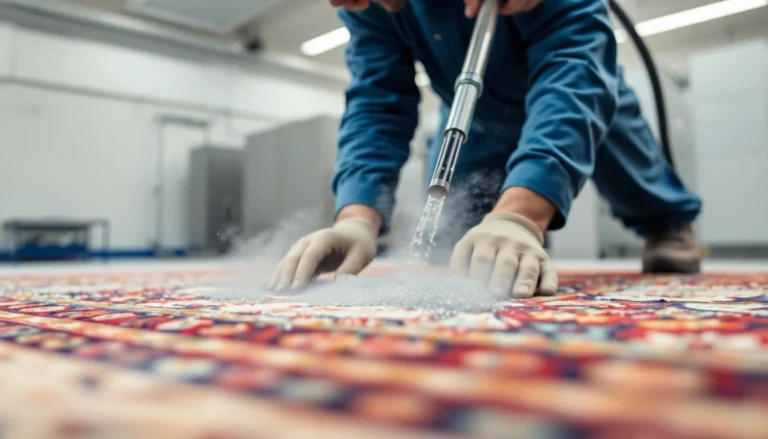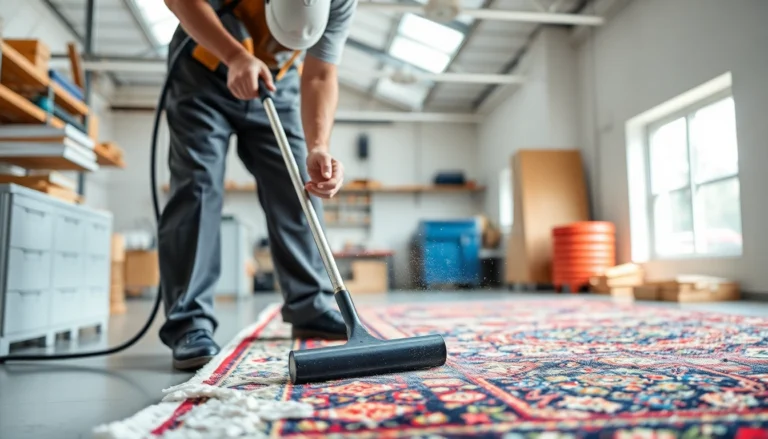Understanding the Importance of Floor Preparation in Birmingham
Creating a durable, professional-quality finish for any flooring project begins with thorough and precise floor preparation. In Birmingham, where the variety of building types—from historic structures to modern commercial spaces—demands tailored solutions, proper preparation is vital to ensure longevity, safety, and aesthetic appeal. Many property owners and contractors overlook this initial step, risking costly issues down the line such as uneven surfaces, delamination, or premature wear.
For those embarking on a renovation or new installation, recognizing the significance of proper floor preparation is the first step towards achieving results that stand the test of time. Whether fitting a sleek epoxy coating in an industrial setting or installing hardwood in a cozy home, sound preparation forms the foundation of quality flooring. To learn more about how professional expertise can elevate your project, visit Floor preparation Birmingham.
Why Proper Floor Preparation Matters for Durability
Durability in flooring hinges on matching the substrate’s condition to the demands of the final surface. Improperly prepared floors may appear level or stable but often conceal underlying issues like moisture intrusion, contamination, or surface irregularities. These problems can cause debonding, cracking, and uneven wear, significantly reducing the lifespan of your flooring.
Effective preparation ensures that surfaces are clean, dry, and structurally sound—forming a reliable bond between the substrate and the topcoat or flooring material. For industrial, commercial, or residential floors in Birmingham, professional preparation involves precise techniques tailored to the specific surface and usage requirements. This proactive measure minimizes future maintenance costs, improves safety, and enhances aesthetic finish.
Common Floor Types in Birmingham and Preparation Needs
Birmingham’s diverse architecture boasts a broad spectrum of flooring substrates requiring specialized preparation techniques. Common floor types include:
- Concrete substrates: Predominant in industrial, commercial, and modern residential buildings, often require grinding, leveling, and moisture testing.
- Old wooden floors: Often need cleaning, repair, and sometimes removal of loose or damaged planks.
- Existing vinyl or tiles: Require removal or adhesion testing to ensure new coatings adhere properly.
- Asbestos-laden surfaces: Must be handled with extra care and by licensed professionals to ensure safety.
Each surface demands specific preparation—ranging from diamond grinding for concrete to patching and sealing for uneven wooden floors. Experienced contractors assess these needs to develop tailored approaches that optimize results.
Consequences of Poor Floor Preparation and Solutions
Neglecting comprehensive preparation can lead to serious issues, including:
- Surface failure: Flaking, delamination, or coating peel-off due to poor adhesion.
- Uneven surfaces: Causing trip hazards or irregular wear patterns.
- Moisture-related problems: Such as bubbling or mold growth, particularly problematic in Birmingham’s humid climate.
- Reduced lifespan and increased repair costs: Premature deterioration forcing costly repairs or replacements.
Fortunately, modern solutions like diamond grinding, moisture barriers, and proper surface repairs can effectively counter these risks. Partnering with professionals ensures the right techniques are employed, safeguarding your investment.
Key Techniques and Equipment for Effective Floor Preparation
Diamond Grinding and Shot Blasting Methods
Diamond grinding is a highly effective method for smoothing and leveling concrete floors. Using industrial diamond-embedded discs, it removes surface irregularities, excess coatings, and contaminants, creating a clean, flat surface. This technique is essential prior to applying coatings like epoxy or resin in Birmingham’s industrial settings.
Shot blasting utilizes high-velocity steel particles to clean and prepare large areas quickly. It’s especially useful for removing paint, adhesives, and laitance—fine particles of cement on concrete surfaces. Both methods enhance adhesion and surface profile, vital for long-lasting coatings.
Surface Repair and Leveling Procedures
Uneven surfaces require targeted patching and leveling. Using self-leveling compounds or concrete overlays, professionals restore flatness, ensuring compatibility with subsequent flooring layers. These repairs are crucial for preventing cracks and minimizing movement that could compromise the finished floor’s integrity.
In cases of severe damage, structural repairs—such as underpinning or reinforcement—may be necessary, especially for historic structures or heavily load-bearing commercial floors.
Choosing the Right Tools for Different Surfaces
Selection of equipment hinges on substrate type and project scope. For concrete floors, diamond grinders and scarifiers are common; for wooden surfaces, sanding machines suffice. For coatings removal, heat guns, chemical strippers, or abrasive blasting might be employed. Skilled contractors evaluate the surface to choose optimal tools, ensuring efficiency and quality outcomes.
Steps to Prepare Your Floors in Birmingham
Assessment and Surface Inspection
The preparation process begins with detailed assessment—checking for cracks, moisture levels, contamination, and surface integrity. Non-destructive testing tools help determine moisture content, pH levels, and surface adhesion suitability. This step ensures the chosen preparation method addresses all underlying issues.
Cleaning and Removing Old Coatings
Proper cleaning is paramount. It involves removing dust, grease, oil, and any previous coatings that could hinder adhesion. Techniques include high-pressure washing, chemical stripping, or abrasive blasting as appropriate, followed by thorough drying.
Executing Leveling and Repair Processes
After cleaning, professionals proceed with leveling uneven patches, filling cracks, and repairing damaged areas. Material selection—epoxy PATCH compounds, self-leveling overlays, or cementitious repairs—depends on the severity and type of repair needed. Ensuring a smooth, even surface provides a solid base for the flooring system to perform optimally.
Hiring Professional Floor Preparation Services in Birmingham
What to Look for in a Reliable Contractor
When selecting a specialist for floor preparation, consider credentials such as licensing, experience, and reviews. A reputable contractor should demonstrate knowledge of various surface types, advanced equipment, and adherence to safety standards. Request examples of past projects similar to yours to gauge proficiency and quality.
Questions to Ask Before Hiring
- What specific preparation techniques do you recommend for my surface?
- How do you handle moisture and contamination issues?
- What is your projected timeline and estimated cost?
- Can you provide references or testimonials?
- What safety protocols do you follow, especially regarding asbestos or hazardous materials?
Understanding Cost and Timeline Expectations
Costs vary depending on surface condition, size of the area, and methods used. Typically, thorough assessment and prep can range from a few hundred to several thousand pounds for large-scale commercial projects. Clear communication about the timeline—often a few days to weeks—is essential for planning. Investing in professional preparation often results in significant savings by reducing repairs and rework later.
Maximizing Longevity and Performance of Your Finished Floor
Post-Preparation Maintenance Tips
Proper care extends your floor’s life. Regular cleaning with suitable products, avoiding harsh chemicals, and promptly addressing spills prevent damage. Implementing a routine inspection schedule helps identify early signs of wear or damage, enabling timely repairs.
Choosing Compatible Flooring Materials
Fit the flooring material to the prepared surface and intended use. For example, epoxy coatings demand clean, moisture-free surfaces; hardwoods require stable, level sub-surfaces; and vinyl needs proper adhesion-favorable conditions. Consult with experts to select options that complement your preparation quality.
Monitoring for Signs of Wear or Damage
Watch for cracks, peeling, or discoloration. Early intervention preserves the integrity of the area and prevents costly replacements. Regular maintenance and professional inspections can catch issues before they escalate.








